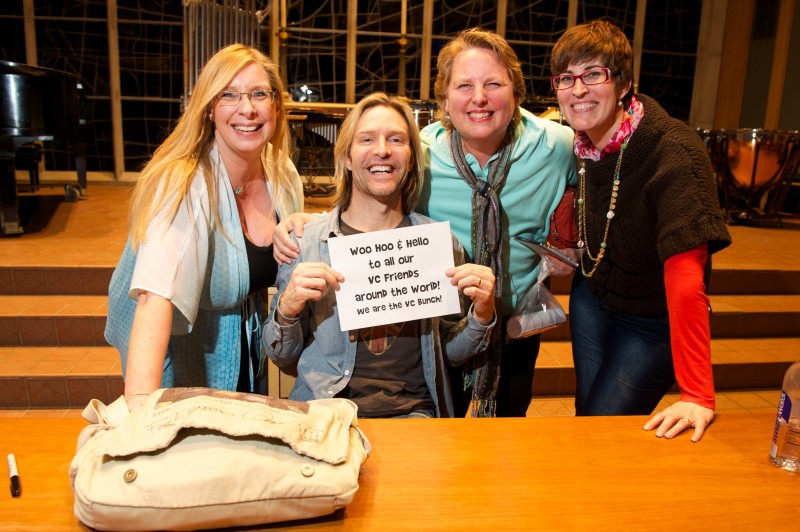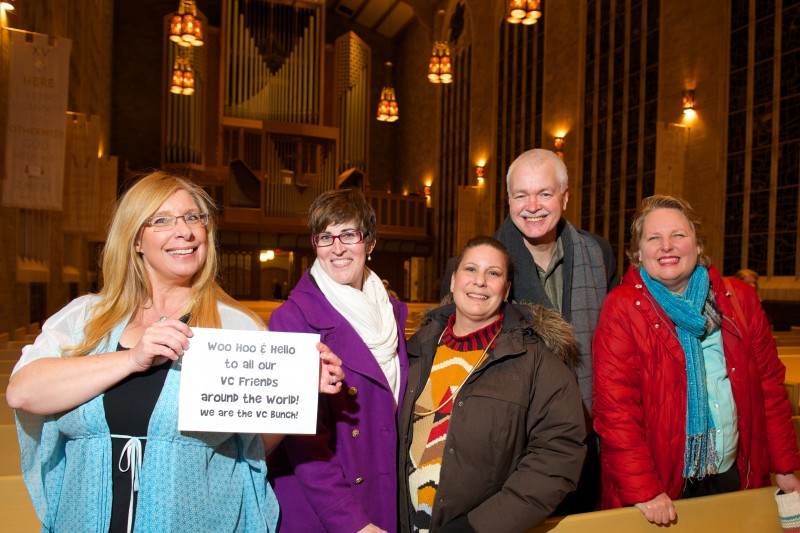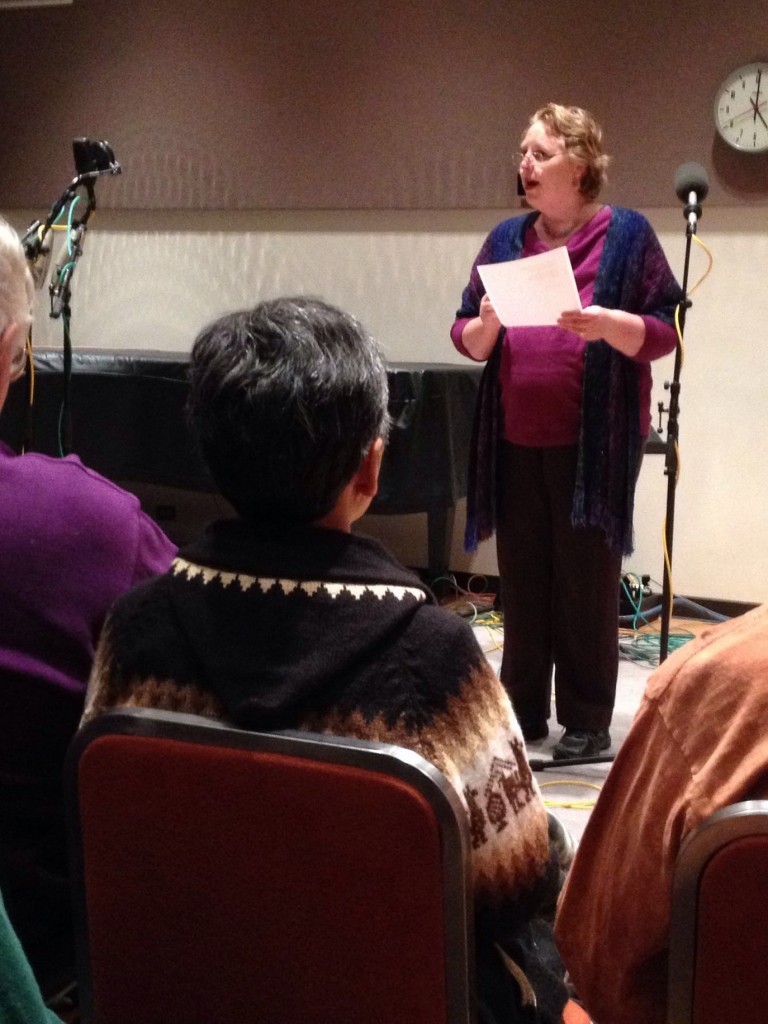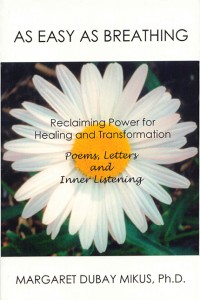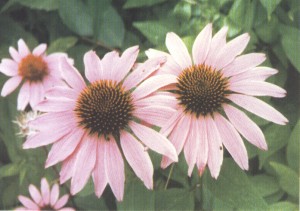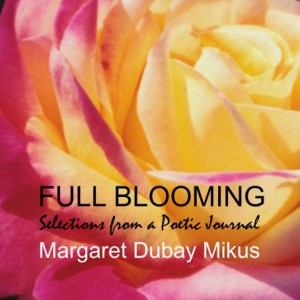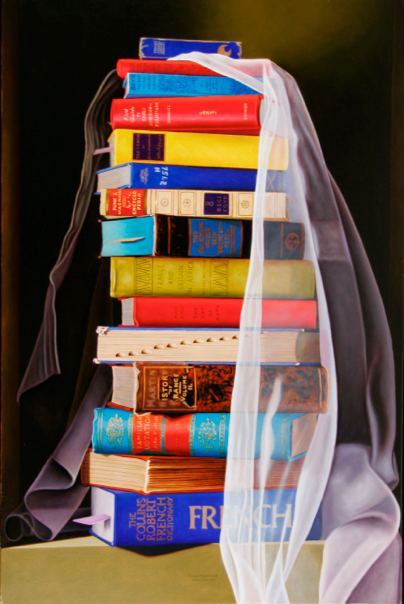
Enjoy this interview from the 40th anniversary issue of the Willow Review (2013), which was part of being the Illinois featured author. The editor, Michael Latza, emailed me the following thoughtful questions (in italics), which I answered. He wanted to have a discussion about the nature of poetry today. Lovely conversation. Used here with permission. (Cover: “Veiled References” by Steven Jones)
Margaret, you have a very involved recent past with poetry in your life. What place did words have in your life at an earlier age? What was your first foray into writing and poetry?
I remember vividly the first book of my own. It was The Whales Go By (1959, by Fred Phleger, an oceanographer). It was a beginner reader about whale migration. I don’t remember when I learned to read, but by 4th grade I was well-hooked and gobbled down any book I could find. Once I discovered the public library, I took out the maximum number of books every time, often reading 12 books a week. I loved biographies and kid’s mysteries (including Nancy Drew and Cherry Ames), then added science fiction. I was very drawn to books with horses in them and main characters who were spunky girls.
When I saved schoolwork, it was often writing or art. I kept a short story with a surprise ending I wrote from a prompt in 5th grade. In 8th grade, a very difficult year for me in a new school, one of my stories about the Civil War was published in the school Pen and Brush magazine.
I can still recite the first verse of a poem we memorized in grade school, “The Children’s Hour” by Henry Wadsworth Longfellow. I didn’t read much poetry on my own, mostly in school. I recently found a high school paper I wrote on Emily Dickenson. I probably was exposed to more poetry through singing, which I loved to do. I do remember a popular poet in the ‘60’s, Rod McKuen, who wrote a book of poems called Listen to the Warm. I read it while walking at dusk, stopping to sit on a curb under a streetlight. Someone came out from the house to ask if I was OK and I moved on.
Reading changed everything for me. It was both an escape from having eczema and the responsibilities of being the oldest daughter in a large family, and a window into a wider world I eventually could see myself entering.
When did you begin to “use” poetry seriously in your life? And would the use of “use” be accurate in the previous statement?
In 1988 I was diagnosed with multiple sclerosis. As my health declined, I went to a therapist to cope better. She gave me writing “homework.” In those journals are the first few poems. After healing from MS I had a creative awakening, beginning a poetic journal in fall of 1995. I longed to “sing from the heart” and the poems just poured out of me. Although my writing style has matured over the years, I still use some of those early poems for collections. “Use” is an accurate word, I think. One of my first serious attempts was to write a poetic fable to support my choral director who was dealing with a lot of negativity.
It is not unusual for poetry to be useful in some way. Many poets have written to impress or praise a loved one, to express sorrow at a loss, to describe something beautiful or sublime in nature. In a recent interview, when asked, “What do you want most from poetry,” Sharon Olds answered, “I want a poem to be useful.” For me, expressing my life in words was both healing and freeing. It allowed me to understand and to share what I see or feel or am passionate about. Through the poems I can help others, finding meaning in the sometimes dark or transcendent things that happen. Writing has heightened my awareness of the beauty around me.
What experiences in your life trigger your muse?
Anything might be a trigger. I never know what will strike me and compelling words begin. It could be as small as an ant or a shadow. It might be cancer or a relationship. It could be something that happens to me or something in the news. Life in all its messy complexity inspires me. I just try to pay attention.
Margaret, you have an extensive background in science. What drew you to the sciences? Do you find that part of you to be at odds with the poetic Margaret?
From an early age I was intensely curious about everything. I remember my Dad coming back from hunting. He laid out a newspaper on the dryer in the basement, cleaning a rabbit or squirrel for dinner, showing me what was inside. I was fascinated.
I grew up in a working class neighborhood. I didn’t know anyone who was a writer or an artist. For most of my life I had the impression I was not a creative person, so I followed the path that seemed open. My mom was a nurse and that appealed to me early on. In high school I had teachers and friends who encouraged me in biology, chemistry and math classes. I did my best when science was balanced with the arts, especially singing.
I don’t think my Ph.D. in microbiology from the University of Chicago is at odds with writing poetry. It was wonderful training in observation and gave me the confidence to speak for myself, good training for poet. Although I no longer do research or teach science, it is a language I still speak fluently. I follow areas of interest and sometimes that prompts a poem. After leaving my job teaching college biology courses at Lake Forest College, I came to realize that being a poet, being able to influence or help people through writing, is a powerful position.
Many of your poems have a very Tao-like simplicity to them. Is that intentional? I guess what I am asking is, do you think that is true, and do you have to work at the poems to achieve this depth of clarity?
I don’t think about how a poem should be expressed. I just try to get out of the way, listen, and let the poem be what it is. Some poems naturally seem simple and clear, others are more complex with layered meanings. The poems on my CD, Full Blooming, for example, were chosen for their accessibility since a listener would have to get some meaning with maybe just one chance at it. I always want a reader to be able to get something from the first read, and if they stay with it, more will come, even from apparently simple poems. Lisel Mueller once said at a reading that she felt her best poems were ones that came to her all at once and did not get re-worked over and over. And I feel that way too. If I am very present in the moment and pay attention to writing the poem down as it comes to the surface, sometimes a poem comes intact, a perfect gift. The craft of writing is important. Good poems may also come together after extensive editing and re-writing. My process has much to do with how it sounds, so reading a poem aloud is how I tell when a poem feels finished. Clarity is achieved if I can “catch” what it was that drew me into the poem in the first place–with no extraneous words.
Some might say that your poems are extremely accessible. Yet, they may be imbued with layers of complexity within the reader’s completion. Do you mean for your poems to be more useful than literary, or more useful than objects of art? Is there a paradox here?
My later poems are more often multi-layered. I like this question about what the reader contributes to the poem; often others find meanings I did not consciously intend. Both are valid ways of looking at a poem. As poets, I think we can tune in and give voice to universal truths, which are then recognized by others.
I want to bridge both worlds and so I submit work to literary journals as well as other places. Something can be beautiful as well as useful. With the Internet, the sharpness of those lines between literary and useful are blurring. That said, I would put myself in the plain-speech category of poets. My strongest influences have been poets like Lisel Mueller, Jane Kenyon, Mary Oliver, Sharon Olds, Kay Ryan, and Billy Collins.
If I can write something that moves someone, gives voice to what is happening in their own life, that is true power. If a poem inspires someone to be hopeful and not despairing, I am truly grateful. One of the highest compliments I ever received was a woman who said that I “caught her life on paper” in a poem I wrote for her.
I don’t think there is a paradox. I think poems have always been useful. Whether a poet was trying to woo a lover or grieve the passing of a dear friend or celebrate the sweetness of their child. Lisel Mueller said that she began writing poetry because it was the only container that could hold her grief at the loss of her mother. William Carlos Williams said: “That’s the way writing often starts, a disaster or a catastrophe… by writing I rescue myself under all sorts of conditions…it relieves the feeling of distress.”
Margaret, you have a successful internet presence. How do you feel about the business of poetry? Does it detract from, or enhance your abilities as an author?
I don’t think business detracts from writing. Yes, it does take time and energy, but it also connects you to all kinds of people. Getting the work out is, in part, why we write. My poems cannot help someone or move them in any way if the poems cannot be found. How to get the word out is constantly changing, with the Internet making poems more easily available. Poetry for me is about connection. Someone from Australia found me by searching for “capable peace poem trust” for example. An article about my first book, As Easy as Breathing, appeared in the South China Morning Post, a major newspaper in Hong Kong. I have no idea how that happened. I learned about it from a woman who read the article and emailed me asking for advice on healing MS. A few years ago a woman found my poem, “I Am Willing,” and used it as a Lenten reflection on her blog. Since that time blogs all over the world have picked up that poem. Sometimes visitors come to my website from those blogs. For a poet, everything that happens, every thought, every person you meet could get woven into a poem at some point. Nothing is wasted. The same is true with the business end.
What are your future plans for your writing, and/or artistic presence?
Thank you for asking. With a new web designer I just finished the first complete re-design of my website, FullBlooming.com, since 2001. The site will continue to evolve and grow. My blog is now integral to the site and many features were added, like the Poem of the Week. In the process of four months of work on this, I re-discovered articles I had written and ones that were written about me. Those are on the new FullBlooming.com as well.
I plan to be more active on my blog, combining essay, poetry and photography. Many new books are in the works using my poems and photographs. I would like to record more CDs. I am working on my first video using one of my early signature poems, “Cast Off,” interpreted by several people. Fascinating to watch what others bring to my words. I will give my unique poetry readings, weaving in some fun stress management and energy balancing, maybe some singing. I continue voice lessons and of course I keep writing and taking photographs. I am open to creative collaborations and new ideas that will still come.
